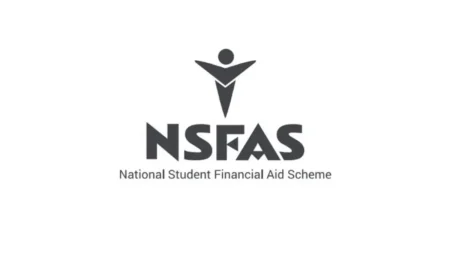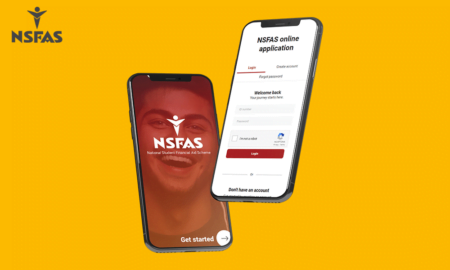Navigating the complexities of NSFAS applications can be daunting for students. This article is a straightforward guide, explaining the reasons for NSFAS rejections and how to appeal based on income and academic criteria, and the supporting documents needed for these appeals.
Understanding NSFAS Rejections
One of the most pivotal steps in a student’s journey towards higher education in South Africa is dealing with the National Student Financial Aid Scheme (NSFAS) funding. NSFAS rejections can be a significant hurdle, but understanding why these rejections occur is key to effectively navigating them.
Typically, NSFAS rejections are based on certain criteria like exceeding the income threshold, academic performance, or non-compliance with NSFAS requirements. It’s essential to know that these decisions are not the end of the road. Instead, they should be viewed as an opportunity to reassess your situation.
Read More: Understanding NSFAS Appeal
NSFAS Rejections and Appeal Reasons
1. Income-Based NSFAS Rejections and Appeals
For First-Time Entering Students:
- Rejection Reason: Income greater than R350,000.
- Reason for Appeal: If you are classified as a vulnerable child or if there is a significant change in your household’s financial situation, making the income fall below the threshold.
- Supporting Documents: Vulnerable children do not need to submit additional documents. However, if there’s a change in income due to unforeseen circumstances like retrenchment or job loss, it is essential to provide proof. This could be a retrenchment letter, a letter of termination from your employer, or documents from the Unemployment Insurance Fund (UIF) showing that you are unemployed or unable to work due to incapacity.
- Additional Note: It is crucial to understand that these documents serve as proof of the sudden change in your financial situation. The retrenchment letter or UIF documents should clearly state your employment status and any benefits you’re receiving. This will help the authorities assess your new financial situation accurately.
For Disabled Students:
- Rejection Reason: Income greater than R600,000.
- Reason for Appeal: This is particularly relevant if you are a student with disabilities and are independent of your biological parents or if the responsibility of your educational expenses falls on one parent due to specific circumstances.
- Supporting Documents: For students declaring independence from their parents, a court order is required. This order should clearly state that you are legally independent of your parents. In cases where the cost of education is borne by only one parent, perhaps due to divorce or separation, a divorce decree stating this financial arrangement is necessary.
- Additional Note: For disabled students, it’s important to highlight how your unique circumstances impact your financial situation. If your disability leads to additional expenses, make sure to communicate this in your appeal. Also, if you’re relying on a single parent’s income, the divorce decree should specifically mention the financial responsibilities regarding your education.
2. Returning Students: Audit Investigation
- Rejection Reason: As a returning student, you might face a rejection due to an audit investigation if your NSFAS profile has a ranking of 91. This ranking often implies discrepancies or concerns regarding the information you have provided or changes in your eligibility status.
- Reason for Appeal: The grounds for appealing this rejection mirror those of first-time students. They include being a vulnerable child, experiencing a significant change in household income, or establishing independence from your parents.
- Supporting Documents:
- ITA34 Form from SARS: This document is crucial. It is an income tax assessment that gives a detailed overview of your or your family’s financial status. This form from the South African Revenue Service (SARS) is key in proving your current income level.
- For Vulnerable Children: If you are appealing on the basis of being a vulnerable child, you may not need additional documents. However, it’s always good to have any legal documents that verify your status.
- In Case of Income Change: If your appeal is due to a change in income, such as a parent losing a job or a decrease in family income, supporting documents like retrenchment letters, letters of termination, or UIF documents are essential. These should clearly indicate the change in employment status or income reduction.
- For Independent Students: Students declaring independence from their parents must provide a court order that legally states this status. This is particularly relevant if you’re self-supporting or no longer under your parents’ care.
- Additional Considerations:
- Timely Submission: It is important to submit your appeal and all supporting documents as soon as possible. Delays can affect the processing and outcome of your appeal.
- Detailed Explanation: Along with your documents, include a detailed explanation of your situation. If your family’s financial situation has drastically changed, explain how and why this impacts your need for NSFAS funding.
- Consultation: If you’re unsure about the process, consult with your institution’s financial aid office. They can provide guidance and ensure your appeal is as strong as possible.
Key Takeaway:
Returning students facing NSFAS rejections due to audit investigations must approach their appeals with clear and detailed supporting documents. Whether it’s a change in income, a vulnerable child status, or independence, the key is to provide concrete evidence to support your claim. Understanding the specifics of your rejection and meticulously preparing your appeal can significantly increase the chances of a favorable outcome.
3. Academic Ineligibility Appeals
- NSFAS Rejection Reason: One of the more challenging aspects for students seeking NSFAS funding is the academic ineligibility due to exceeding the N+ rule. This rule is a guideline set by NSFAS to determine the maximum allowed duration for completing a qualification, typically the standard duration plus two years.
- Reasons for Appeal:
- Illness: If your academic progress was hindered due to severe illness, you have grounds for appeal.
- Childbirth: Students who have given birth during the academic term can also appeal.
- Disability: If your disability adversely affected your studies, this is a valid reason for an appeal.
- Death in the Family: The death of an immediate family member can significantly impact your academic performance and is considered a valid reason for appeal.
- Victim of a Violent Crime: Experiencing a violent crime can have profound effects on your academic progress.
- Needing Additional Subjects to Complete Qualification: If you are close to completing your qualification but need a few more subjects, you can appeal on these grounds.
- Supporting Documents:
- Letter from Your Institution: This letter should endorse your potential to complete your qualification. It must indicate a clear understanding of your circumstances and support your ability to finish your course within an additional academic term.
- Medical Reports: In cases of illness, childbirth, or disability, provide medical reports detailing the severity and duration of your condition and how it affected your studies.
- Death Certificates: If appealing due to a death in the family, include the death certificate of the family member.
- Proof of Crime Victim Status: If your academic progress was impacted by being a victim of a violent crime, include relevant proof or a police report.
- Additional Letters for Course Completion: If you are appealing because you need to complete a few more subjects, include a letter from your institution or TVET College clarifying your academic situation.
- Additional Advice:
- Detailed Explanation: When submitting your appeal, provide a detailed explanation of your circumstances. Clearly articulate how the events impacted your academic progress.
- Consult Academic Advisors: Engage with your institution’s academic advisors or counselors. They can provide valuable assistance in framing your appeal effectively.
- Timeliness: Submit your appeal as soon as possible. Delay in submission can affect the reconsideration process.
Key Takeaway:
For students facing academic ineligibility, understanding and effectively communicating the reasons behind your academic challenges is crucial. Whether it’s due to personal health, family circumstances, or other significant events, your appeal should be supported with relevant, well-documented evidence. Remember, the goal of your appeal is to provide a clear and compelling argument for why your circumstances should allow for an extension or reconsideration under the NSFAS guidelines.
Related: 3 Common NSFAS Appeal Errors and Solutions
Understanding the reasons behind financial aid rejections and the required process for appeals is essential for students in South Africa. Whether it’s due to income changes, personal circumstances, or academic challenges, knowing what documents to provide and how to present your case can make a significant difference. Always remember to keep your documentation ready and reach out to your institution for guidance if needed.










